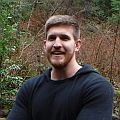CITIZEN SCIENCE IN ACTION, PROTECTING BC HABITAT: “Annual workshops provide an opportunity for stakeholders to learn about topics of local interest and plan ways that they can make a difference,” states Glen Parker, North Shore Streamkeepers
Note to Reader:
Throughout BC, there is an amazing network of volunteer groups working to protect riparian habitat, monitor salmonid health and support hatcheries to enhance local salmonid populations. Each group has stories to share about how their members participate as citizen scientists in efforts to support this iconic species.
One such group is the North Shore Streamkeepers (NSSK). The article that follows was contributed by Barbara Frisken, NSSK President, and Glen Parker, NSSK Treasurer. In her day job, Barbara is a Professor and Undergraduate Chair in the Department of Physics at Simon Fraser University. Glen Parker is a retired engineer and has worked around the world on petroleum industry projects. His global work has made him acutely aware of how much of the world has been impacted by human activity and how we all need to part of managing these impacts.
As the NSSK story clearly illustrates, stewardship operates under a different dynamic than the private sector or government. Stewards are drawn together for a common cause, like-minded individuals with a vision for the greater good. This purpose is not to be found in the policy manuals of government, nor in regulations or legislation. Rather, it is built upon an enthusiastic personal commitment and passion by a band of individuals to make a difference.

North Shore Streamkeepers – Citizen Science in Action
IMPROVING WHERE WE LIVE: Citizen Science in Action on Metro Vancouver’s North Shore
Collaboration, Collaboration, Collaboration
“It is important to note how much of the work of the North Shore Streamkeepers is supported by close ties to First Nations, government, universities and local industry,” the authors state.
“We work closely with local governments (both North Vancouver City, North Vancouver District), local First Nations (Squamish, Tsleil-waututh), and the federal government, particularly through Community Advisors with Fisheries and Oceans Canada (DFO).
“We follow protocols, developed by the Pacific Streamkeepers Federation in partnership with DFO, to monitor water quality, restore riparian habitat, and survey numbers and health of returning spawners.
“And we work on projects involving multiple stakeholders, including our government partners, local universities and local industry.”
Mosquito Creek – Engaging the Next Generation of Leaders
“Some of our projects are designed to directly impact local salmonid populations, such as a restoration project currently in progress on Mosquito Creek,” continue Barbara Frisken and Glen Parker.
 “Keegan Casidy, one of our younger Streamkeepers, was keen to help the salmon in the creeks near his family home. This led to lots of small-scale work and monitoring of Mosquito Creek, in particular, through the past two years. Keegan monitored spawners, made sure that flow into and out of off-channel habitat was maintained, and kept us informed of problems and successes on the creek.“But the search was on for ways to make a bigger impact. This led to the NSSK asking DFO for ‘high value targets’ for enhancement. Mosquito Creek was identified as one of the best opportunities in North Vancouver creeks.
“Keegan Casidy, one of our younger Streamkeepers, was keen to help the salmon in the creeks near his family home. This led to lots of small-scale work and monitoring of Mosquito Creek, in particular, through the past two years. Keegan monitored spawners, made sure that flow into and out of off-channel habitat was maintained, and kept us informed of problems and successes on the creek.“But the search was on for ways to make a bigger impact. This led to the NSSK asking DFO for ‘high value targets’ for enhancement. Mosquito Creek was identified as one of the best opportunities in North Vancouver creeks.
“NSSK approached Northwest Hydraulics Consultants (NHC) for help on Mosquito, as we had recently worked with them successfully on a project on Lynn Creek. At first, they were a bit vague on how they could help, but it turned out that they were taking the time to approach the Squamish Nation (SN) to get permission to share results of a recent study.
“SN agreed, and NHC shared a significant report containing recommendations for enhancement of Mosquito Creek with NSSK. This really lit a fire under Keegan.
“Fortunately, the recommendations in the report were nearly perfectly aligned with the work NSSK had done with DFO. Keegan has run with this; he has organized meetings with stakeholders, received support from the landowners (SN and CNV) and has approval from CNV Council for in-kind support. Keegan is currently leading the grant writing for funding for the Mosquito Creek project.”
Scope of Involvement and Influence is Expanding Beyond the Creek Channel
“Other projects are of wider, though less direct, impact. We were fortunate to have a retired engineer, Glen Parker, join the group several years ago. As well as being a superb project manager, he is also a keen networker,” observes Barbara Frisken.
 “In this capacity, he has been instrumental in raising concerns about plans for upgrading Metro Vancouver’s wastewater treatment plants. While tertiary treatment is now used by most new plants, Metro Vancouver is currently planning to build plants to flush secondarily treated waste into the Salish Sea.
“In this capacity, he has been instrumental in raising concerns about plans for upgrading Metro Vancouver’s wastewater treatment plants. While tertiary treatment is now used by most new plants, Metro Vancouver is currently planning to build plants to flush secondarily treated waste into the Salish Sea.
“Glen is working with many groups to try to have Metro Van adopt a standard of tertiary treatment of all waste water (sewaqe). Recently, the SN have written to the Federal Government on this issue and the DFO and Environment Canada now seem more interested in Metro’s liquid wastes.”
What Happens on the Land Matters
“Other projects focus on education and awareness-building. About once a year we host a 1-day workshop for Streamkeepers and other related groups. These provide an opportunity for stakeholders to learn about topics of local interest  and plan ways that they can make a difference,” emphasizes Glen Parker.
and plan ways that they can make a difference,” emphasizes Glen Parker.
“Recent topics include the impact of climate change on Northshore fish, and the impacts of stormwater and rainwater runoff on communities and creeks. The focus of the 2019 workshop, held in February, was on how Streamkeepers can help ensure the Wild Salmon Policy Implementation Plan is successful.
“DFO Minister Wilkinson provided introductory remarks, Sarah Murdoch (DFO) and Zo Ann Morten (Pacific Streamkeepers Federation) made presentations, and Dave Patterson and Steve MacDonald of DFO’s Pacific Science Enterprise Centre joined a panel that discussed ways in which Streamkeepers can help with the implementation plan.”
And in Closing: “As volunteers, as citizen scientists, as community members, we are delighted to have the opportunity to work to improve the conditions for salmonids in the watersheds of the North Shore (of Vancouver) mountains,” conclude Barbara Frisken and Glen Parker.


